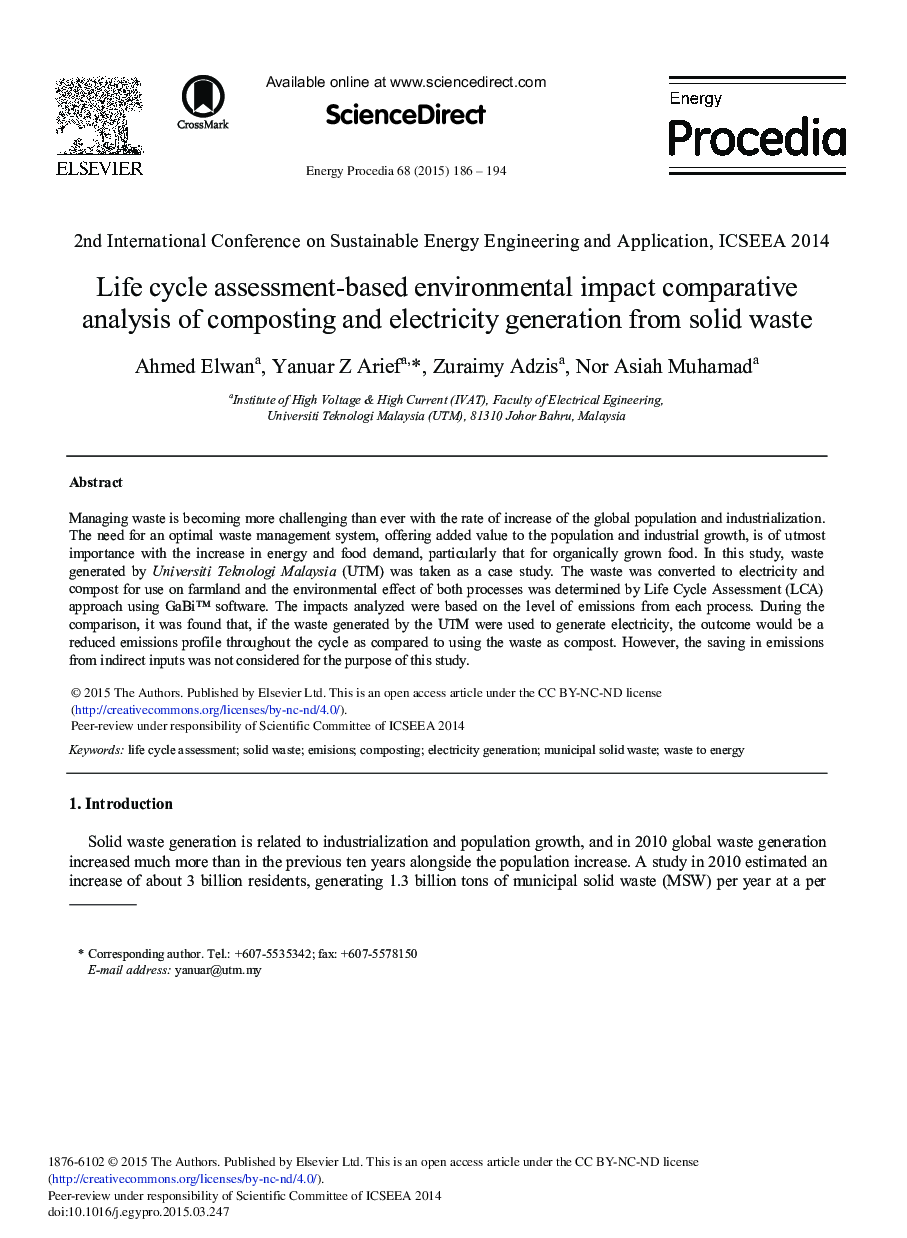| Article ID | Journal | Published Year | Pages | File Type |
|---|---|---|---|---|
| 1510394 | Energy Procedia | 2015 | 9 Pages |
Abstract
Managing waste is becoming more challenging than ever with the rate of increase of the global population and industrialization. The need for an optimal waste management system, offering added value to the population and industrial growth, is of utmost importance with the increase in energy and food demand, particularly that for organically grown food. In this study, waste generated by Universiti Teknologi Malaysia (UTM) was taken as a case study. The waste was converted to electricity and compost for use on farmland and the environmental effect of both processes was determined by Life Cycle Assessment (LCA) approach using GaBi⢠software. The impacts analyzed were based on the level of emissions from each process. During the comparison, it was found that, if the waste generated by the UTM were used to generate electricity, the outcome would be a reduced emissions profile throughout the cycle as compared to using the waste as compost. However, the saving in emissions from indirect inputs was not considered for the purpose of this study.
Keywords
Related Topics
Physical Sciences and Engineering
Energy
Energy (General)
Authors
Ahmed Elwan, Yanuar Z. Arief, Zuraimy Adzis, Nor Asiah Muhamad,
